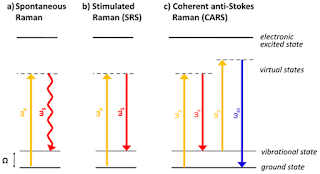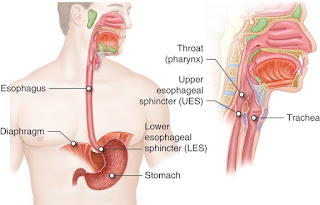Benefits of Healthy Diet
Introduction
The food we eat is a crucial factor that affects our health, mood, and overall well-being. A healthy diet is essential for maintaining a healthy body and mind. A balanced and nutritious diet provides our bodies with the necessary vitamins, minerals, and nutrients to function optimally. The benefits of a healthy diet are numerous and can improve every aspect of our lives.
In this article, we will explore the benefits of a healthy diet and how it can positively impact our physical and mental health.
Weight Management
A healthy diet is one of the most effective ways to manage weight. A balanced diet that includes whole foods, fruits, vegetables, lean proteins, and healthy fats can help control weight gain and even promote weight loss. Processed foods, sugary beverages, and fast foods contribute to weight gain, obesity, and other health issues.
Eating a healthy diet can help you maintain a healthy weight and avoid the risks of being overweight or obese. Being overweight or obese increases the risk of chronic diseases such as type 2 diabetes, heart disease, and some cancers.
Improved Heart Health
Eating a healthy diet can significantly improve heart health. A diet rich in fruits, vegetables, whole grains, lean proteins, and healthy fats can lower blood pressure, reduce cholesterol levels, and decrease the risk of heart disease.
Foods that are high in saturated and trans fats, sodium, and added sugars can increase the risk of heart disease. A diet high in processed foods, fast food, and sugary beverages can increase blood pressure and cholesterol levels, contributing to heart disease.
Eating a healthy diet that includes whole foods, fruits, vegetables, and lean proteins can help you maintain a healthy heart and reduce the risk of heart disease.
Increased Energy Levels
A healthy diet can increase energy levels and improve overall well-being. Foods that are high in sugar and processed carbohydrates can cause energy crashes and mood swings, leading to fatigue and decreased productivity.
Eating a diet rich in whole foods, fruits, vegetables, lean proteins, and healthy fats can provide sustained energy throughout the day. Whole foods are rich in fiber, which helps slow down digestion, leading to sustained energy levels and stable blood sugar levels.
Better Digestive Health
A healthy diet can improve digestive health by promoting the growth of healthy gut bacteria. A diet rich in whole foods, fruits, vegetables, and fiber can help regulate digestion and prevent constipation.
Processed foods, fast food, and sugary beverages can disrupt gut health and contribute to digestive issues such as constipation, bloating, and diarrhea.
Eating a healthy diet that includes fermented foods such as yogurt, kefir, and kimchi can also improve gut health by introducing healthy probiotics into the gut.
Stronger Immune System
A healthy diet can strengthen the immune system, helping the body fight off infections and illnesses. A diet rich in whole foods, fruits, vegetables, and lean proteins can provide the necessary vitamins, minerals, and nutrients to support the immune system.
Foods that are high in sugar, saturated and trans fats, and sodium can weaken the immune system, making the body more susceptible to infections and illnesses.
Eating a healthy diet that includes a variety of whole foods, fruits, vegetables, and lean proteins can boost the immune system and reduce the risk of infections and illnesses.
Improved Mental Health
A healthy diet can improve mental health by reducing the risk of depression and anxiety. A diet rich in whole foods, fruits, vegetables, and healthy fats can provide the necessary nutrients to support brain health and improve mood.
Foods that are high in sugar and processed carbohydrates can cause mood swings and contribute to depression and anxiety.
Eating a healthy diet that includes whole foods, fruits, vegetables, and healthy fats can improve mental health and reduce the risk of depression and anxiety. Research has shown that there is a link between diet and mental health. A study conducted by the University of Eastern Finland found that a healthy diet that includes vegetables, fruits, fish, and whole grains was associated with a lower risk of depression in middle-aged adults.
A healthy diet can also help improve cognitive function, memory, and concentration. The brain needs nutrients such as omega-3 fatty acids, B vitamins, and antioxidants to function optimally. A diet rich in whole foods, fruits, vegetables, and healthy fats can provide the necessary nutrients to support brain health.
In contrast, a diet that is high in saturated and trans fats, processed foods, and sugar can contribute to inflammation in the brain, which can lead to cognitive decline and mood disorders.
In addition to the physical benefits, a healthy diet can also improve self-esteem and confidence. Eating a balanced diet can help you feel better about yourself, both physically and mentally. A healthy diet can also help reduce stress and improve sleep quality, which are both essential for maintaining good mental health.
A healthy diet is essential for maintaining a healthy body and mind. A balanced diet that includes whole foods, fruits, vegetables, lean proteins, and healthy fats can provide the necessary vitamins, minerals, and nutrients to function optimally.
Eating a healthy diet can improve weight management, heart health, energy levels, digestive health, immune system, and mental health. A healthy diet can also improve self-esteem and confidence, reduce stress, and improve sleep quality.
By making small changes to your diet, such as incorporating more fruits and vegetables, lean proteins, and whole grains, you can significantly improve your overall health and well-being. A healthy diet is not a fad or a trend; it is a lifelong commitment to taking care of your body and mind. So, start today and make healthy eating a part of your lifestyle.







.jpg)







